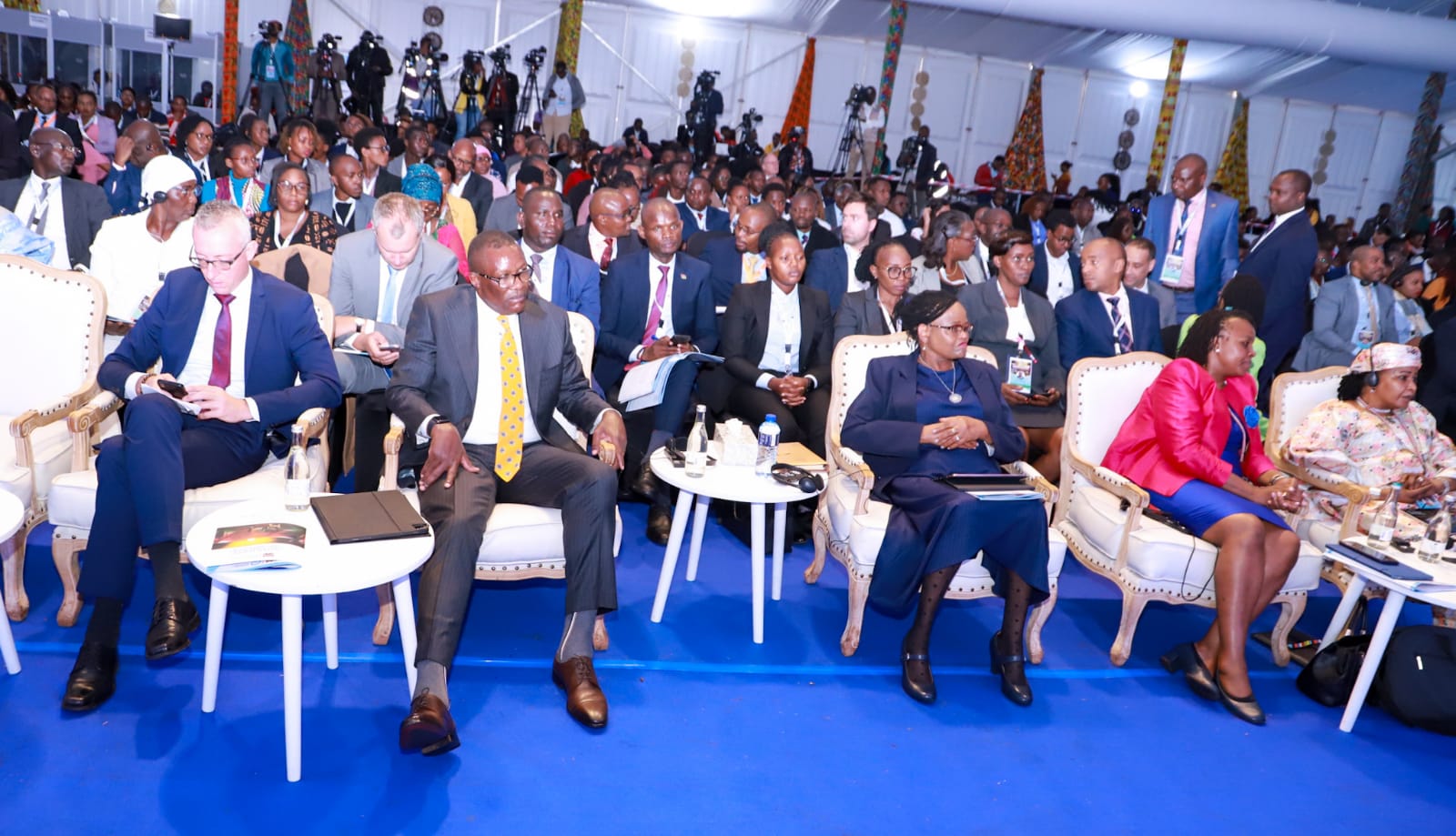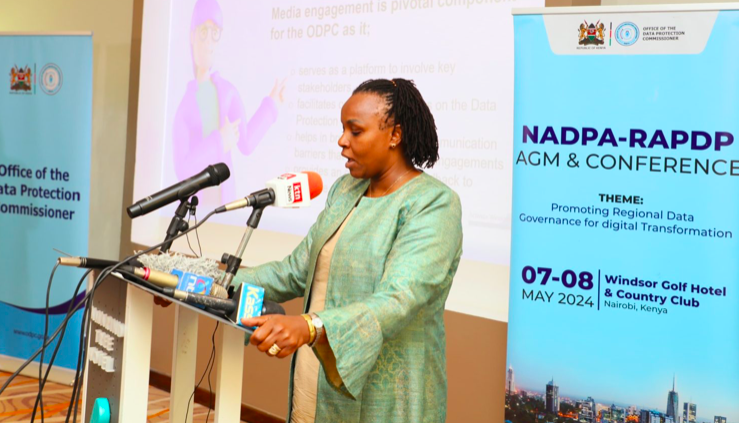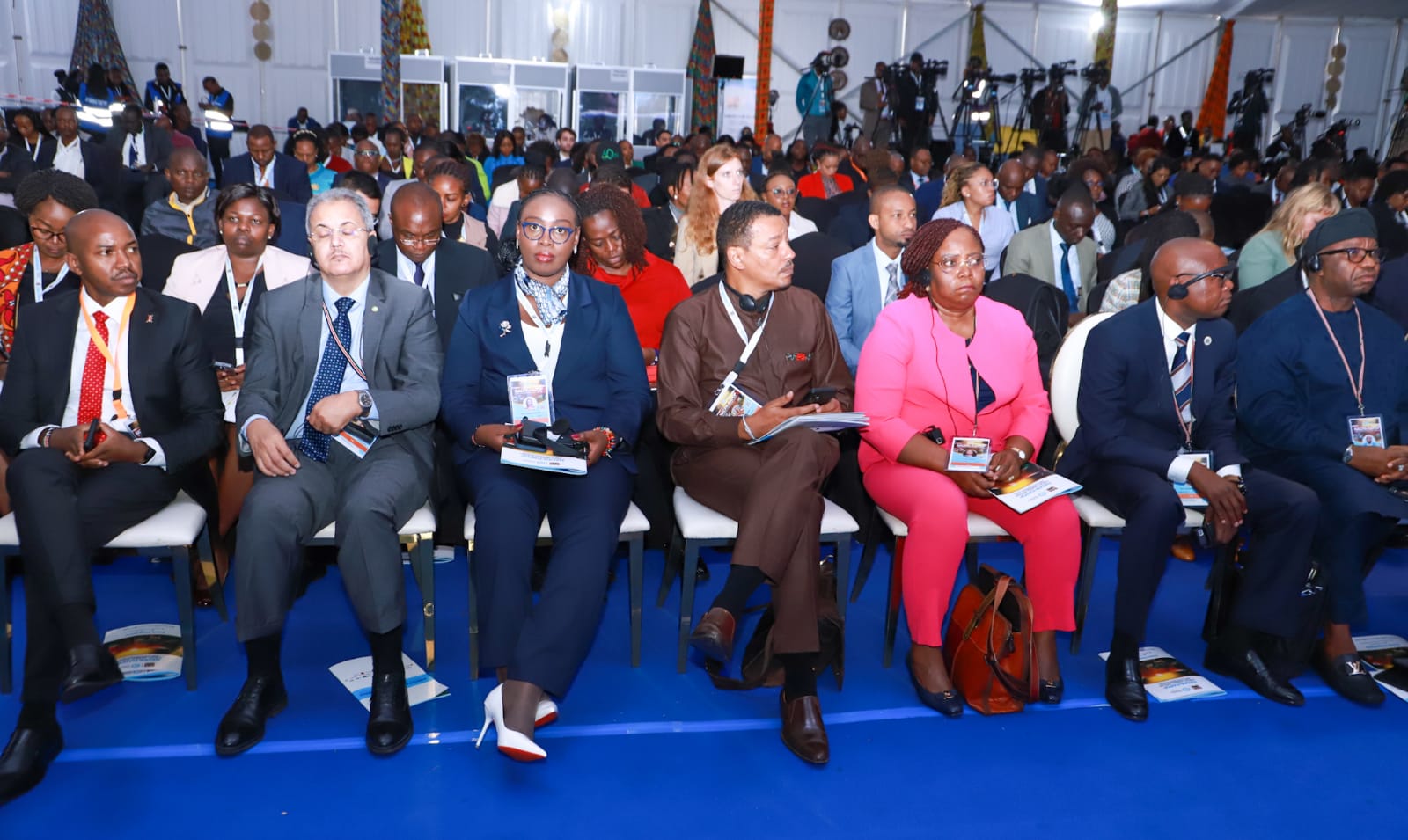By Henry Owino
Nairobi, Kenya: African leaders and think tank members were urged to collectively commit to the 2014 Malabo Africa Union Convention on Cybersecurity and Data Protection. In an increasingly digital world, data protection authorities on the continent must take all necessary steps to safeguard the fundamental right to privacy.
By collectively embracing the principles and standards outlined in the Malabo Convention, African nations can create a more conducive environment for digital innovation and economic growth while safeguarding the privacy rights of their citizens. A commitment to data protection and cybersecurity will not only benefit individuals but also contribute to the development of a more inclusive and sustainable digital society in Africa.
Eng. John Tanui, Principal Secretary of the Ministry of Information, Communications and the Digital Economy, emphasized that the Office of the Data Protection Commissioner in Kenya is responsible for promoting international cooperation on data protection matters and ensuring compliance with data protection obligations under international conventions and agreements.
Eng. Tanui revealed Kenya through this Office applied and joined the Network of Data Protection Authorities (NADPA/RAPDP) in May 2021 with the aim being to promote cooperation among African countries on matters relating to Personal Data Protection.
Martha Koome, Chief Justice and President of the Supreme Court of Kenya said the Judiciary will support all data protection efforts since it has made work much easier. It has brought remote transactions and convenience to current generation lives.
“The proliferation of the internet has its fair share of challenges such as heightened risk of fraud and misuse of personal information. Every time individuals engage in online activities, they leave behind a digital footprint, a trail of personal data that, if mishandled, can result in identity theft and erosion of trust in digital services” cautioned the Judiciary Chief.

On the other hand, Eliud Owalo, Cabinet Secretary, Ministry of Information, Communications and Digital Economy, said the Government of Kenya, through the Office of the Data Protection Commissioner, is fast tracking the signing and ratification of African Union Convention on Cybersecurity and Personal Data Protection.
Additionally, Owalo disclosed that discussions are currently underway for an Adequacy Decision with the European Union and United Emirates to promote cross-border data transfer.
“In that regard, I direct the Data Commissioner in Kenya to initiate a similar Adequacy Decision discussion with AU Member States and more so NADPA members,” Owalo directed.
Owalo made the remarks during the official opening of the conference on Network of Africa Data Protection Authorities (NADPA) and the 9th annual general meeting (AGM), held in Nairobi, Kenya.
The NADPA conference 2024 and 9TH AGM gathered members to formulate strategies aimed at promoting regional data governance for digital transformation.
The conference was themed: “Promoting Regional Data Governance for Digital Transformation“. The theme therefore, provided all participants of the conference with a platform to; Network and exchange knowledge, Gain new ideas and perspectives from peers on Africa’s digital transformation journey.
The conference was building up on the Africa Union Commitment of 23rd Ordinary Session where the African Union (AU) adopted the African Union Convention on Cyber-Security and Data Protection (Malabo Convention) held on 20th – 27th June, 2014 in Malabo, Equatorial Guinea.
The Convention provides a legal framework for African Countries to address three thematic areas: Electronic Commerce (e-transactions); Personal Data Protection; Cyber-Security and Cybercrime. It expresses the commitment of African States to build an information society through collaboration at the regional and international level. Further, it seeks to promote e-commerce by securing the cyber space through combating cybercrime, enhancing personal data protection and promoting the African digital economy.
According to an Access Now report, over the past 10 years have seen 35 countries enact modern data protection laws in Africa, beginning with Cabo Verde in 2001.
Many countries on the continent lack the necessary resources and expertise to effectively enforce data protection laws and regulations. While noting some of the Africa-International cooperation and technical assistance can play a vital role in strengthening the capacity of African countries to protect personal data and ensure compliance with the Malabo Convention.
Cross-Border Data Transfer
According to Owalo, the movement of information across national borders drives today’s global economy. Additionally, the cross-border data transfers allow businesses and consumers to access the best available technology and services globally.

Africa is experiencing a rapid growth in the development of intermediate digital infrastructure, including digital identification systems, digital payment systems and wider e-governance systems. Further, the operationalization of the African Continental Free Trade Area (AfCFTA) with its aim to increase cross-border trade and develop a single digital market in Africa. It is also motivating African countries to develop continental interoperable digital systems.
“It is against this backdrop that I call upon all members of NADPA to support the AU agenda by developing a harmonized framework that facilitates free cross-border data transfer,” the CS Ministry of Information, Communications and Digital Economy emphasized.
Children today are early adopters of ICTs yet they are the most vulnerable consumers. Computers have brought untold benefits to children around the world as the number of connected households increases by day. Children and young adults engage with the digital world the most and there is a need to explore what mechanisms exist to protect children online.
“I call upon NADPA members to promote child safety through ensuring the right frameworks are put in place to protect children and also to prepare them for the digital opportunities,” Owalo cautioned.
Africa Agenda
In 2023, the AU developed a Continental Strategy on Artificial Intelligence (AI). In a world where AI is rapidly transforming every aspect of our lives, from healthcare and education to transportation and governance, policymakers must grasp the fundamental concepts, opportunities, and challenges this groundbreaking technology presents.
According to Owalo, Kenya through the Ministry of Information, Communications and the Digital Economy is currently reviewing the legal, policy and regulatory framework with a view of proposing reforms and new policies including the adoption of emerging technologies to align with the Bottom-Up-Economic Transformation Agenda.
Owalo inspiration: “I encourage NADPA members as implementers of data protection laws in your respective countries to continuously review the Data Protection legal frameworks and ensure adoption of new technologies in a data privacy secured environment.”

Data localization and public cloud for African countries as they realized the enormous potential of a robust digital economy to create new business opportunities, increase efficiency, contribute to sustainable development and reshape people’s lives thus leading to the development and adoption of the AU Data Policy Framework in 2022.
The Data Policy Framework aims to strengthen and harmonize data governance frameworks in Africa and thereby create a shared data space and standards that regulate the intensifying production and use of data across the continent.
“Kenya like any other Africa Countries has developed ICT Infrastructure including data centres which have the capacity to offer high end cloud services to private and government institutions,” Owalo affirmed.
He challenged African Countries to explore ways of implementing a shared ICT Infrastructure to reduce cost and ensure optimal use of already developed infrastructure.
“As policymakers on data protection and data localization, it is my recommendation that you collaboratively develop mechanisms to effectively share already established infrastructure within the Africa region especially on data hosting and cloud infrastructure,” he recommended.
The Future of Digital Sovereignty and data governance is on the Africa Agenda 2063 blueprint and master plan for transforming Africa into the global powerhouse of the future. It is the strategic framework for delivering on Africa’s goal for inclusive and sustainable development.
Further it is a regional manifestation of the pan-African drive for unity, self-determination, freedom, progress and collective prosperity pursued under Pan-Africanism and African Renaissance.
Opportunities and Challenges
African states face unique challenges and opportunities in asserting control over their digital future while navigating the influences of global competing interests and ensuring that partnerships contribute to sustainable growth and job creation.

Members were encouraged to explore the current state of digital sovereignty and data governance in Africa and discuss strategies for shaping a prosperous and self-determined digital landscape.
Proper data governance can help attract more investment to the continent, create jobs and grow the economy. Industry 4.0 is majorly data/information driven and hence for Africa to actualise the gains, data governance should be a critical consideration.
It’s worth noting the remarkable growth of Information Technology (IT) services, which averaged 8% annually between 2000 and 2022, nearly double the pace of the global economy. Meanwhile, employment in IT services surged by 7% annually during this period, dwarfing the mere 1% growth in total employment.
The global software and business process outsourcing (BPO) services market hit a staggering US$2.4 trillion in 2022, projected to soar to US$3.9 trillion by 2026. Despite these impressive figures, Africa still trails behind in the IT value chain, particularly in emerging technologies like AI.
Smaller and less developed economies face challenges due to the scarcity of large data sets needed to train AI models. Hence, there’s a pressing need to originate our own data sets tailored to Africa’s needs. Moreover, a framework for data flows and data governance is essential to trace the origin of these data centers, ensuring equitable sharing of the benefits derived from such solutions.
Members recognized the opportunities available to transform the lives of African citizens through development and implementation of sound policies that are in tandem with the emerging technologies.
The discussions developed and outcomes from the conference will be forwarded for considerations by the AU Council of Ministers.














